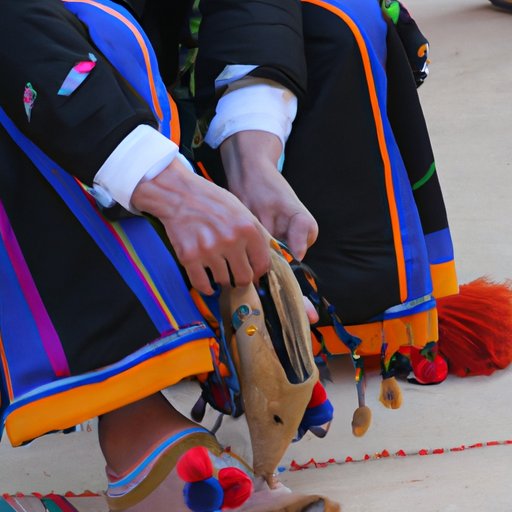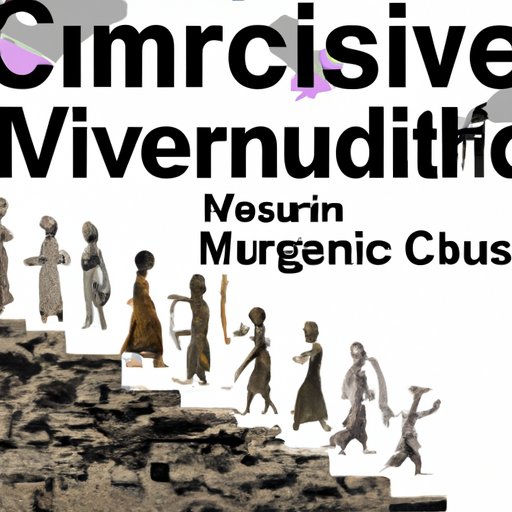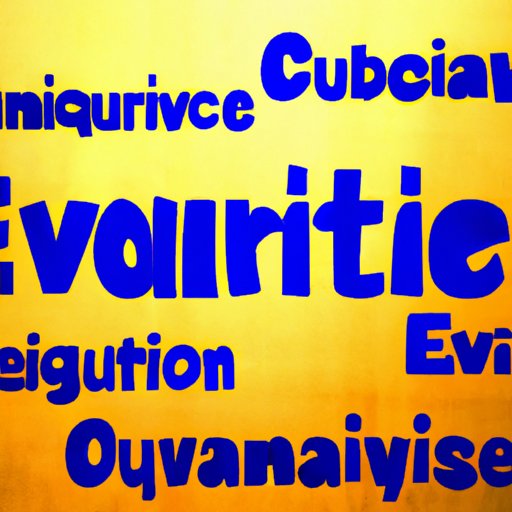Introduction
Culture is an integral part of our lives. It shapes the way we think, act and interact with others. But what exactly is culture? In its most basic definition, culture is a shared set of values, beliefs, practices and traditions that define a particular group of people. It encompasses everything from language to religion to art, and it helps to create a sense of identity within a community.

A Guide to Understanding Different Cultures
In order to understand different cultures, it’s important to explore the values and beliefs of the various groups. These values and beliefs often determine the behaviors and attitudes of members of a society. They can also inform the way decisions are made and the way people interact with each other. Additionally, cultural practices such as ceremonies, rituals and festivals help to further define a culture and provide insight into the values and beliefs of the group.
It’s also important to consider the impact of cultural practices on society. For example, some cultural practices may be seen as oppressive or discriminatory, while others may promote inclusion and understanding. Examining the effects of different cultural practices can help us to better understand the complexities of different cultures.
How to Respect Other Cultures
In order to respect other cultures, it’s important to understand cultural sensitivity. This involves being aware of the values and beliefs of different cultures and being respectful of their customs and traditions. It also means recognizing and appreciating diversity and avoiding making assumptions about different cultures.
Developing an appreciation for diversity can also help us to better understand different cultures. This involves learning about different cultures and gaining insight into their values and beliefs. It also means being open to different perspectives and being willing to accept differences in opinion and behavior.

The Role of Cultural Traditions in Our Lives
Cultural traditions play an important role in our lives. They help to shape our identities and provide us with a sense of belonging. Recognizing the significance of cultural heritage allows us to appreciate our own culture and gain an understanding of other cultures. It also provides us with a connection to our past and helps to preserve our history.
Exploring how cultural traditions impact our lives is also important. Cultural traditions often dictate the way we dress, the way we speak, and even the way we interact with others. They can also help to shape our beliefs and values, and influence our decisions and behaviors.
Analyzing the Cultural Values of Different Countries
In order to gain a better understanding of different cultures, it’s important to analyze the values associated with them. Investigating the social structure of different cultures can provide insight into the values that are held by the members of the society. This can include examining the roles and responsibilities of men and women, as well as the status and power dynamics between different social classes.
Examining the values of different cultures can also help us to better understand why certain behaviors are accepted in one society and frowned upon in another. It can also provide us with a greater appreciation for the diversity of cultures around the world.

Examining How Cultures Evolve Over Time
Finally, it’s important to look at how cultures evolve over time. Looking at how cultural practices change over time can help us to gain insight into the process of cultural evolution. Analyzing the factors that lead to cultural evolution can also provide us with a better understanding of how different cultures interact with one another.
For example, globalization has played a major role in the evolution of cultures. The spread of ideas and technologies has allowed different cultures to interact and exchange information, leading to the emergence of new cultural practices and traditions.
Conclusion
In conclusion, culture is an integral part of our lives. It shapes the way we think, act and interact with others. Understanding different cultures involves exploring the values and beliefs of the various groups, examining the impact of cultural practices on society, respecting other cultures, recognizing the significance of cultural heritage and analyzing the cultural values of different countries. Additionally, looking at how cultures evolve over time can provide us with a better understanding of how different cultures interact with one another.
By understanding different cultures, we can gain insight into the values and beliefs of different societies and develop an appreciation for diversity. This can ultimately lead to a more harmonious and tolerant world.
(Note: Is this article not meeting your expectations? Do you have knowledge or insights to share? Unlock new opportunities and expand your reach by joining our authors team. Click Registration to join us and share your expertise with our readers.)
